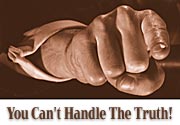The European Union has moved to end a diplomatic row with Cuba by suspending a policy of inviting dissidents to national day celebrations.
But dissidents said the about-turn would strengthen President Fidel Castro's hand and warned that Europe ran the risk of becoming an accomplice to continued repression on the island.
The "cocktail war" erupted when European countries decided to invite opponents of the communist government to embassy parties to signal disapproval of a crackdown on dissent in 2003. Castro snubbed European diplomats in return.
Since then Cuba has released 14 of a group of 75 political prisoners and reopened diplomatic channels with EU states.
"All measures taken on 5 June 2003, have been temporarily suspended," Foreign Minister Jean Asselborn of Luxembourg, holder of the rotating EU presidency, said.
"The [EU] Council expressed its will to hold a constructive dialogue with Cuba with a view to getting tangible results on economic, political matters and human rights," he added.
"Europe faces a moral dilemma: Whether it will be a friend of the Cuban people or an accomplice to this regime"
Asselborn said the suspension would be reviewed before July in the light of progress in human rights and political reforms on the island, and the EU would meanwhile widen its links with figures in the Cuban opposition and civil society.
But Cuban opposition leader Oswaldo Paya urged the EU to continue pressing Havana to release the remaining political prisoners.
He urged European tourists not to visit the Caribbean island to enjoy its beach resorts until the prisoners were freed.
"Europe faces a moral dilemma: Whether it will be a friend of the Cuban people or an accomplice to this regime," Paya said.
"In Cuba there is no democracy or freedom. The EU is giving its support to a government that does not respect human rights," said dissident economist Martha Beatriz Roque, who was released from jail in July.
Britain welcomed the move to normalise relations with Havana while maintaining Europe's commitment to human rights and a transition to pluralist democracy in Cuba.
"We will use this opportunity to raise human rights concerns with the Cuban government, including our call for the release of all political prisoners," said British Undersecretary of State for Foreign and Commonwealth Affairs Bill Rammell in a statement.
But critics say Cubans still suffer human rights abuses and have sought to resist any thaw in relations with the EU.
British Conservative Charles Tannock called the move an appeasement of Castro and said he and over 100 other members of the European parliament would make a formal complaint to the EU's executive commission.
"Such a change [of policy] would send all the wrong signals to Havana and do enormous harm to the cause of democratic reform in that country," he said in a statement.
"The [EU] Council expressed its will to hold a constructive dialogue with Cuba with a view to getting tangible results on economic, political matters and human rights"
The shift means EU embassies will no longer be obliged to invite dissidents to national day receptions.
However it does not prevent them from inviting opposition figures to such functions if they want to, a diplomat said.
Former communist states Poland and the Czech Republic were among the fiercest opponents to any thaw towards Cuba. Former Czech president Vaclav Havel wrote an article in the French daily Le Figaro on Friday condemning the move.
"European embassies in Havana will now draw up their invite list according to the wishes of the Cuban government," he wrote.
"I cannot find a better way for the European Union to destroy its noble ideal of liberty, equality and respect for human rights.
Cuban opposition leader Paya, winner of the European parliament's Andrei Sakharov human rights prize in 2002, said: "Havel is the European voice that most speaks out for us."
EU moves to end Cuba 'cocktail war'
Moderators: Cell_Leader, ikaotiki, Julstar
-
jpstr00
- Command Sergeant Major of the Army [E-9]
- Posts: 1030
- Joined: Wed Sep 22, 2004 4:00 am
- Location: In Your Grill
- Contact:

